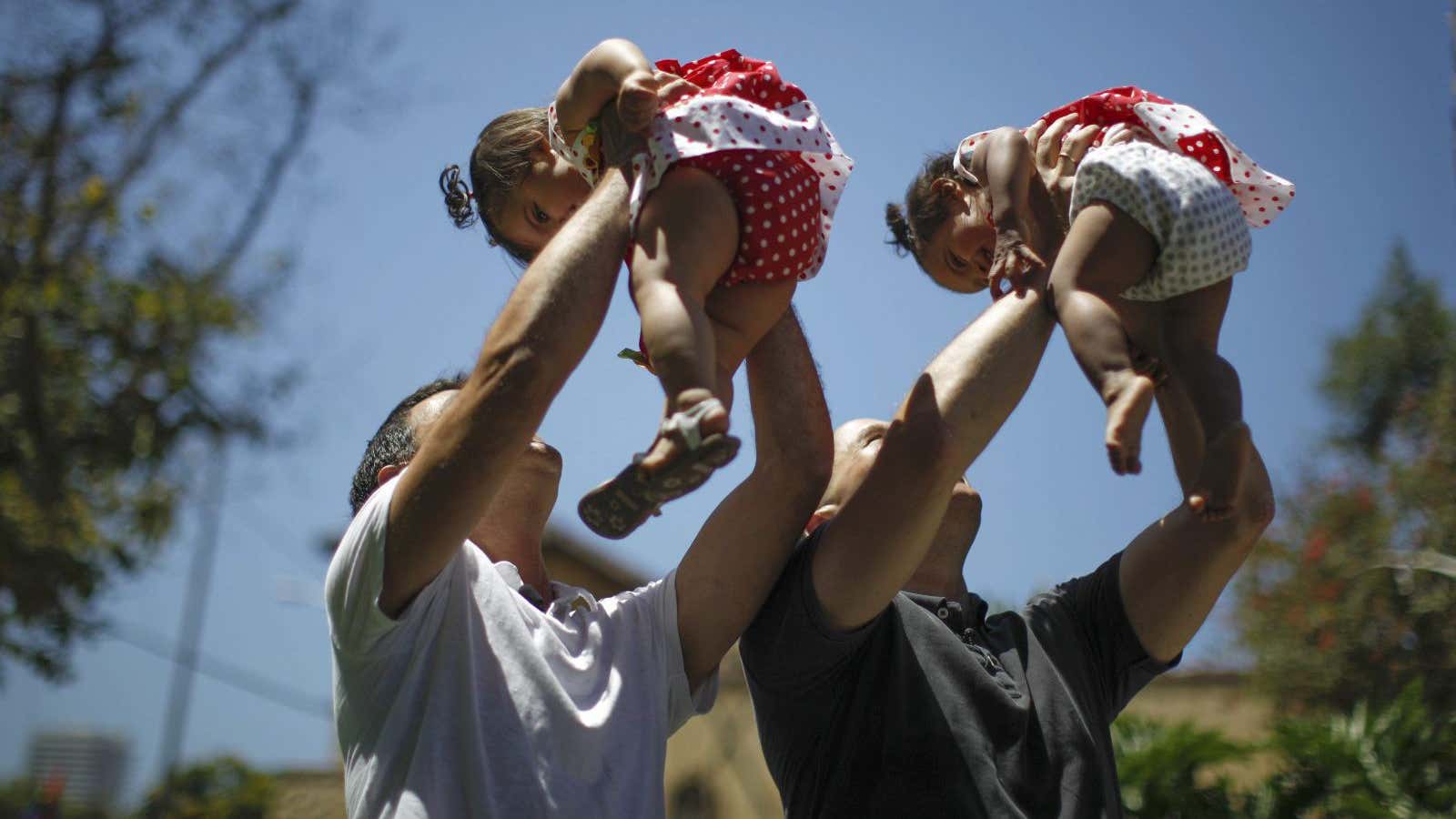At some point, everyone reaches a crossroads in life: Do you decide to take that job and move to a new country, or stay put? Should you become a parent, or continue your life unencumbered by the needs of children?
Instinctively, we try to make these decisions by projecting ourselves into the future, trying to imagine which choice will make us happier. Perhaps we seek counsel or weigh up evidence. We might write out a pro/con list. What we are doing, ultimately, is trying to figure out whether or not we will be better off working for a new boss and living in Morocco, say, or raising three beautiful children.
This is fundamentally impossible, though, says philosopher L.A. Paul at the University of North Carolina at Chapel Hill, a pioneer in the philosophical study of transformative experiences. Certain life choices are so significant that they change who we are. Before undertaking those choices, we are unable to evaluate them from the perspective and values of our future, changed selves. In other words, your present self cannot know whether your future self will enjoy being a parent or not.
“You’re supposed to know these special things about yourself—like if you’re a smart, thoughtful person, and you reflect carefully, you can know. I think it’s not a failure if you don’t know,” she says. “We can be alien to our own selves at different times.”
Paul began considering the lack of a rational decision-making framework for transformative experiences after having her own children. She found, as most parents do, that her core preferences changed; she was now willing to sacrifice herself for this other being, her child. Hearing about this instinct beforehand simply didn’t provide the same knowledge as experiencing it.
“One of the deepest and most important features of being a parent was epistemically inaccessible to me,” she says. “There’s a way in which I am a different person. I’m metaphysically the same person but I’m a different self.”
To count as a transformative experience, something must be both epistemically and personally transformative. Examples include taking certain drugs, going to the moon, going to war, killing someone, being spiritually reborn, or suffering a major physical accident. (Not all of these examples are choices, of course, but they are certainly transformative.)
When faced with a potentially transformative choice, Paul explains the problem at hand:
“It’s going to change who you are, it’s not clear that there’s a straightforward question about which life is better. In each life, you’ll develop values about that way of living. You can’t make this decision by projecting yourself into your future self by knowing what it’s going to be like and deciding if that’s the way you want to be. It’s just not rational.”
Paul is an analytic, rather than continental, philosopher—an important distinction in the field. Continental philosophy encompasses 2,000 years of thought from some of the most well-known philosophers, such as Plato, Aristotle, Nietzsche, and Sartre. Analytic philosophy began in the early 20th century, with a focus on logic and language. It doesn’t attempt to address questions deemed unanswerable (such as whether there’s a god), and it has a tendency to get obscure, fast (unpacking the nature of the word “and,” for example, is a pretty hot topic). Analytic philosophy is the dominant school in both the US and the UK, which has likely contributed to philosophy fading from the public sphere over the past century. Paul’s work has been so groundbreaking in part because it combines the rigor of analytic philosophy with the significance of truly profound topics.
“Big questions often get soft and squishy very quickly and I find that unproductive,” she says. In her telling of the problem of transformative experiences, there’s a factor that cannot be represented in the decision-making model. “It’s unknown, like the unknown unknown you see in economics,” she says.
Philosophers were not so accepting of Paul’s work when she first started considering transformative experiences. The subject was a “huge career risk,” she says, and plenty of people told her to abandon the topic.
“Talking about it was just not something serious philosophers do. ‘We don’t talk about babies,’” she says. “But I was a philosophically trained adult who went through that experience and I knew that it had a certain structure that needed to be explored.”
Having established the epistemological significance of transformative life choices, there still remains the question of how, exactly, we should make such decisions. Paul is still figuring this out. So far, her best proposal is that, while you can’t know which choice you’ll prefer, you can at least decide whether you want to experience a transformation.
